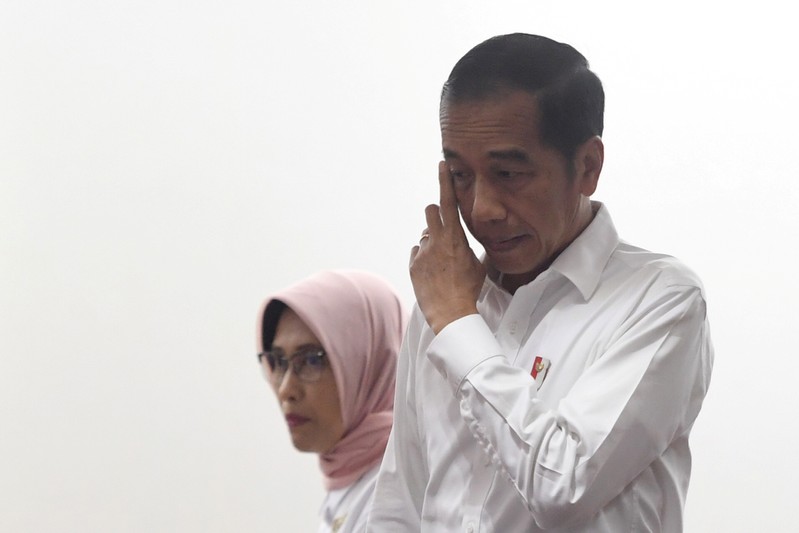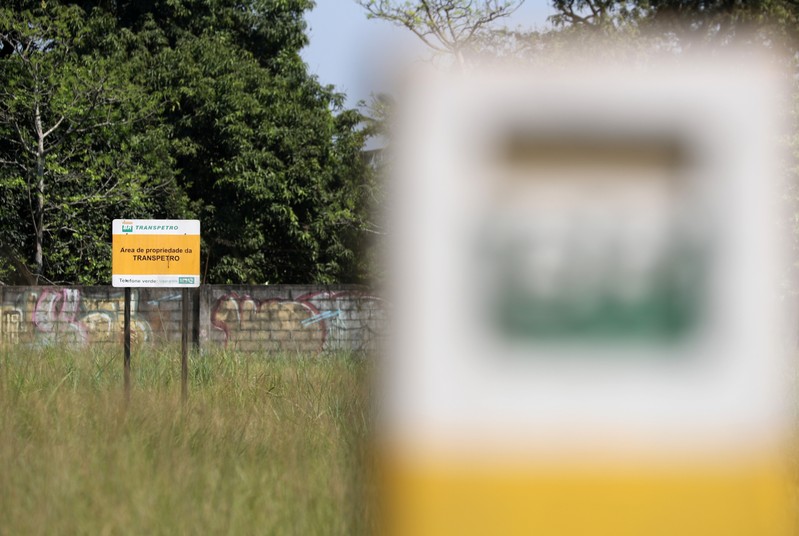
FILE PHOTO: Indonesian President Joko Widodo gestures as he arrives with Sripeni Inten Cahyani, who is PLN’s acting CEO, during a visit at PT Perusahaan Listrik Negara (PLN) headquarters after a major power blackout in Jakarta, Indonesia, August 5, 2019 in this photo taken by Antara Foto. Antara Foto/Akbar Nugroho Gumay/ via REUTERS
September 20, 2019
By Gayatri Suroyo and Agustinus Beo Da Costa
JAKARTA (Reuters) – Indonesian President Joko Widodo on Friday ordered a delay in a parliamentary vote on a new penal code criminalizing sex outside marriage and same-sex relations, which has been criticized by rights groups as an assault on basic freedoms.
The vote had been due next week with the revisions also including penalties for insulting the president’s dignity and a four-year jail term for abortions in the absence of a medical emergency or rape..
Indonesia, the world’s most populous Muslim-majority country, has substantial Christian, Hindu and Buddhist minorities but has seen a recent trend toward greater religious piety and conservative Islamic activism.
“I have ordered the law and human rights minister to convey this decision to parliament, to delay the confirmation of the criminal code bill,” Widodo told a televised news conference.
The president said he had decided 14 articles needed further review after receiving input from various groups and ordered his minister “to perfect” the bill before it is deliberated on by the next parliament.
At a news conference, Law and Human Rights Minister Yasonna Laoly said he would follow the president’s order to clarify some clauses of the bill, while fiercely defending it.
Laoly criticized some media portrayals of the bill, which he described as more lenient than the current Dutch colonial-era set of laws. He said sex outside marriage was only an offence if a parent, child or spouse lodged a complaint or a village chief did so after receiving permission from the family.
As parliament’s current term ends this month, lawmakers had scrambled to wrap up debates on several bills, including new rules that activists say will strip the anti-corruption agency of its effectiveness.
A new parliament of members elected following April’s legislative vote begins its term next month.
Hundreds of students staged protests outside parliament on Thursday against the proposed changes to the criminal code.
Tempo newspaper on Friday likened the planned revisions to a return to the “New Order” of former authoritarian ruler Suharto, who curbed free speech and allowed cronies and his family to control big chunks of the economy.
The Institute for Criminal Justice Reform, a non-government organization, welcomed the delay and urged the government to set up an expert panel to ensure a new draft is “in line with the principles of constitutional democracy” and has wide public support.
“Indonesia’s draft criminal code is disastrous not only for women and religious and gender minorities, but for all Indonesians,” said Andreas Harsono, senior Indonesia researcher at Human Rights Watch.
“Lawmakers should remove all the abusive articles before passing the law.”
The planned revisions had also spurred neighbor Australia to update its travel advice, warning citizens of risks they faced from sex outside marriage or same-sex relations in Indonesia if the new rules take effect.
Australians are among the leading visitors to the holiday island of Bali and the country’s Daily Telegraph newspaper carried a lurid headline on Friday: “Bali Sex Ban”.
(Additional reporting by Fransiska Nangoy; Editing by Ed Davies and Clarence Fernandez)

